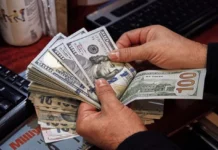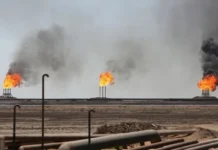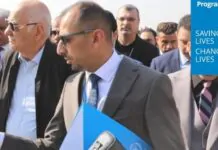Tishwash: An imminent agreement between Erbil and Baghdad to resume the region’s oil exports and settle employee salaries – Urgent
Member of Parliament, Shwan Muhammad, said on Friday (June 27, 2025) that a comprehensive agreement between Baghdad and Erbil is likely to be reached soon, re-exporting Kurdistan’s oil through SOMO and providing a solution to the months-long employee salary crisis.
Mohammed said in a press statement followed by “Baghdad Today” that “the agreement includes exporting the region’s oil through the National Marketing Organization (SOMO), with the federal Ministry of Finance responsible for paying the dues of the operating oil companies, while providing guarantees that no obstacles will be placed in the way of the process.”
The Kurdish MP explained that “the success of this agreement will have a direct impact on the salaries issue and pave the way for resolving the outstanding financial disputes between the two parties.”
As the elections approach, Iraqi parties are preparing for internal and external challenges that require resolving disputes and strengthening the economic front. This is particularly true in light of declining oil exports and increasing international pressure on the federal government to ensure transparency in resource management. Meanwhile, Kurdish demands are escalating to end what has been described as the “collective punishment” policy of the region’s employees through salary delays. link
Tishwash: Sherwan Dobardani: Erbil and Baghdad have reached an agreement and it must be adhered to.
A delegation from the federal government arrived in Erbil on Thursday, June 26, 2025, and began its meetings with a delegation from the Kurdistan Regional Government at 5:00 PM, MP Sherwan Dubardani said.
The two sides reached good results and an agreement on resuming Kurdistan oil exports, he added.
“Erbil and Baghdad have reached an agreement to resume the export of Kurdistan Region’s oil, and the agreement must be adhered to,” Sherwan Dubardani, a member of the Iraqi parliament representing the Kurdistan Democratic Party, told Kurdistan 24 on Friday, June 27, 2025. He added, “A delegation from the Kurdistan Regional Government will meet with oil companies next week.“
Dubardani added, “The Kurdistan Regional Government must abide by the law we voted on in the House of Representatives, and Baghdad must abide by the same law. Companies that signed contracts with the regional government have legal contracts according to the same law.”
He pointed out that “there is no excuse for the federal government not to abide by the agreements because the Kurdistan Regional Government is prepared to implement the law enacted by the Council of Representatives, which is to pay 50% of the financial revenues to the federal government.”
He explained that Iraqi political parties accuse the Kurdistan Regional Government of non-compliance and use slogans against the KRG because they have not delivered anything for their constituents in their provinces. Especially since parliamentary elections are due to be held soon in Iraq, they are using these slogans as political leverage. link
************
Tishwash: Erdogan: We will transform geopolitical potential into economic advantage through a “development path” extending from Iraq to Türkiye and on to Europe.
Turkish President Recep Tayyip Erdoğan said that his country will work to transform geopolitical potential into an economic advantage through the “Development Road” project extending from Iraq to Turkey and reaching Europe.
Speaking at the Global Transport Corridors Forum held at the Istanbul Congress Center on Friday, Erdoğan expressed his happiness at his country hosting this forum at a critical time witnessing the reshaping of the global trade route, as well as at hosting representatives from 70 countries in Turkey as part of the forum’s activities.
He said: “We hope that the forum participants will have the opportunity to discuss many issues, such as cross-border cooperation opportunities, digital transformation steps, infrastructure investments, and the harmonization of transit transport operations, within the framework of the forum.”
He stressed that the forum will be an important platform that showcases Turkey’s vision and leadership capacity in the field of transportation to the entire world, rather than just an international meeting.
Erdoğan explained that the “Development Road” impact on production will exceed $50 billion within 10 years and is expected to provide an average of 63,000 job opportunities annually.
The Turkish president indicated that geopolitical potential will be transformed into a comprehensive economic advantage that will benefit the entire region through the “Development Road” project.
He explained that the “Development Road” is a land and railway route extending from Iraq to Turkey and its ports, extending 1,200 kilometers within Iraq, and aims to transport goods between Europe and the Gulf states.
Erdoğan noted that tensions in the Middle East and the uncertainty surrounding the Strait of Hormuz and airspace “reminded us of the importance of safe transport corridors,” emphasizing that the importance of logistics lines that facilitate the movement of people and goods in the global economy is growing day by day.
He said, “This approach is the primary motivation behind Turkey’s massive investments in land, air, and sea routes, as well as telecommunications and energy lines, particularly over the past 22 years.”
He added, “Under our governments, we have invested nearly $300 billion in transportation and communications infrastructure.”
He explained that $177 billion of this was spent on highways, $64 billion on railways, $25 billion on airlines, $4 billion on maritime transport, and $25 billion on communications infrastructure.
He added, “The impact of these investments on production has reached $1.65 trillion.” Thanks to our investments in transportation, we have also achieved significant increases in employment, and many sectors, from industry to exports, from tourism to logistics, have been positively impacted by these investments.”
During his speech, Erdoğan touched on the “Middle Corridor,” noting that he expects the trade volume in the Middle Corridor, the railway linking Europe to Asia via Turkey, to reach $75 billion.
Erdoğan explained that the Middle Corridor extends from China to Europe and connects 21 countries via a railway network. It offers transportation twice as fast as maritime routes and nearly four times more economical than air routes.
He pointed out that this project represents a revival of the historic Silk Road, emphasizing the operationalization of the Baku-Tbilisi-Kars railway line, which forms the backbone of the Middle Corridor.
“Alongside all these initiatives, our efforts continue to align the Middle Corridor with the Belt and Road Initiative implemented by the People’s Republic of China,” Erdoğan continued.
The Middle Corridor is an alternative to the Northern Corridor linking China and Europe. It runs from Turkey to the Caucasus region, then crosses the Caspian Sea to Turkmenistan and Kazakhstan, reaching China.
The Middle Corridor is one of three global trade corridors from China to Europe, the first being the Northern Corridor via Russia, the Southern Corridor via Iran, and the Maritime Corridor via the Suez Canal.
The Middle Corridor is 4,256 km long by road and rail, and 508 km by sea. link





